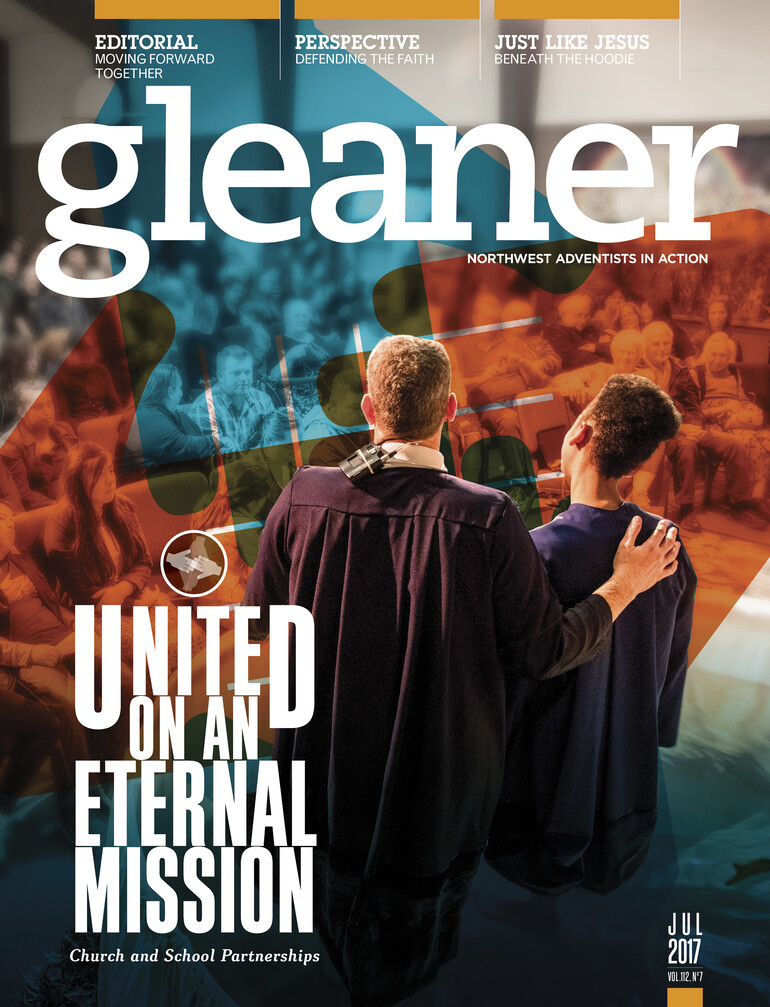This summer I have the burden of traveling to Oxford University for my doctoral residency to study the writings of C.S. Lewis. I realize that many of you will feel immediate sympathy for me as I wander the ancient streets of London, peruse ancient manuscripts at the Bodleian Library, and enjoy meals where Lewis and The Inklings (which included J.R.R. Tolkien) gathered.
The trip doesn’t come without work. I am saturated in thousands of pages of prereading so I can be prepared to ask something intelligent of the world-class scholars who will be instructing us, instead of saying something silly to bring shame upon my professors.
I don’t mind the work — I’ve loved reading Lewis since I was a child and continued to enjoy his theological and philosophical writings when they were introduced to me at Union College in Lincoln, Neb. As I worked my way through biography a couple weeks ago, I came across a fascinating tension Lewis experienced as a Christian apologist — someone who defends the faith. Apparently, the practice of arguing and debating weakened his faith even as it strengthened the faith of others.
Penner (2013) observes, “Defending Christian belief is not an unqualified good; it may actually be counterproductive to faith” (p. 9). This seems like a strange thing to say, especially given texts like 1 Peter 3:15, which states, “But in your hearts honor Christ the Lord as holy, always being prepared to make a defense to anyone who asks you for a reason for the hope that is in you; yet do it with gentleness and respect.”
How could giving a “defense” of your hope be a bad thing? Shouldn’t we spend time defending faith in debates and discussions — especially online?
Jacobs (2008) points out that “theological argument” played a smaller role in Lewis’ work even though it played a “disproportionately large role in the memories of some of his admirers” (p. 236). Lewis’ arguments “recede into the background” later in his career due to “exhaustion and fame” (ibid.). While people clamored for his apologetic materials Jacobs says Lewis “was increasingly frustrated with people’s reliance on him as the one no one else could 'put down'” (ibid.). As he became a faith champion, a letter revealed a hint of panic. Jacobs says, due to exhaustion, there is a “sense that he does not know how much longer he can hold the fort against an endless wave of enemies” (ibid.). He was keenly aware that he was not “omnicompetent” — meaning eventually someone would best one of his arguments.
Lewis’ faith was increasingly weakened by “every successful foray into the realm of apologetics” (p. 238). This strikes most of us as odd — who wouldn’t love to have a mind like C.S. Lewis that could swiftly and elegantly deconstruct atheist arguments? I know at times I have envied his ability to articulate profound theological observations — though I take comfort in the fact he hated math as much as I do (true story!).
Part of the issue for Lewis, and any apologist, is they sometimes dedicate “himself or herself to answering questions that Jesus himself consistently refused to answer” (p. 243). The simplicity of the gospel is traded for more complex questions and eventually you argue yourself in a corner — meaning that one begins to realize faith is only as strong as the next clever argument a person can come up with. Instead of depending on a living “hope” rooted in a personal transforming knowledge of Jesus, faith depends on your next argument. Not only that, but other people’s faith begins to depend on your next argument, and that is a lot of pressure.
Ellen White observes, “Our ministers should not defy and provoke discussion. … they have dared and provoked discussion they have trusted in their prepared arguments, as Saul wanted David to trust in his armor. They have not, like humble David, trusted in the God of Israel, and made Him their strength” (Testimonies for the Church, vol. 3, p. 219). She continues by saying, “Those who love to engage in discussion [debate] generally lose their spirituality. They do not trust in God as they should. They have the theory of the truth prepared to whip an opponent. … While furnished with conclusive arguments, the debater soon thinks that he is strong enough to triumph over his opponent, and God is left out of the matter. Some of our ministers have made discussion their principal business" (Gospel Workers, 1892, p. 184). Yikes.
I think there is room for argument (after all this article and the quotes in it are all a kind of argument); however, eventually, our argument will reach limitations. In 1 John 1:1–4 we are told to testify of what we have seen, heard and experienced. What transcends argument is the reality of the gospel lived out. As Ellen White says, “The strongest argument in favor of the gospel is a loving and loveable Christian” (The Ministry of Healing, pp. 469–470).
References
A. Jacobs, Narnian: The Life and Imagination of C.S. Lewis (New York: Harper One, 2008).
M. Penner, "Apologetics, Suspicion, and Faith," in The End of Apologetics: Christian Witness in a Postmodern Context (Grand Rapids, Mich.: Baker Academic, 2013).











